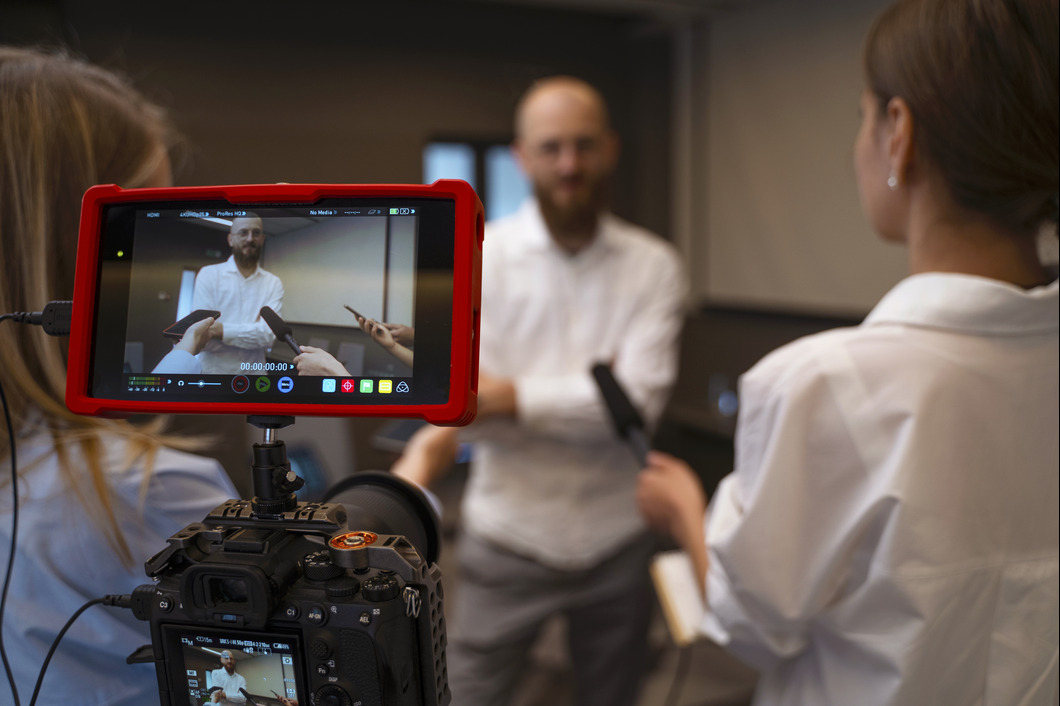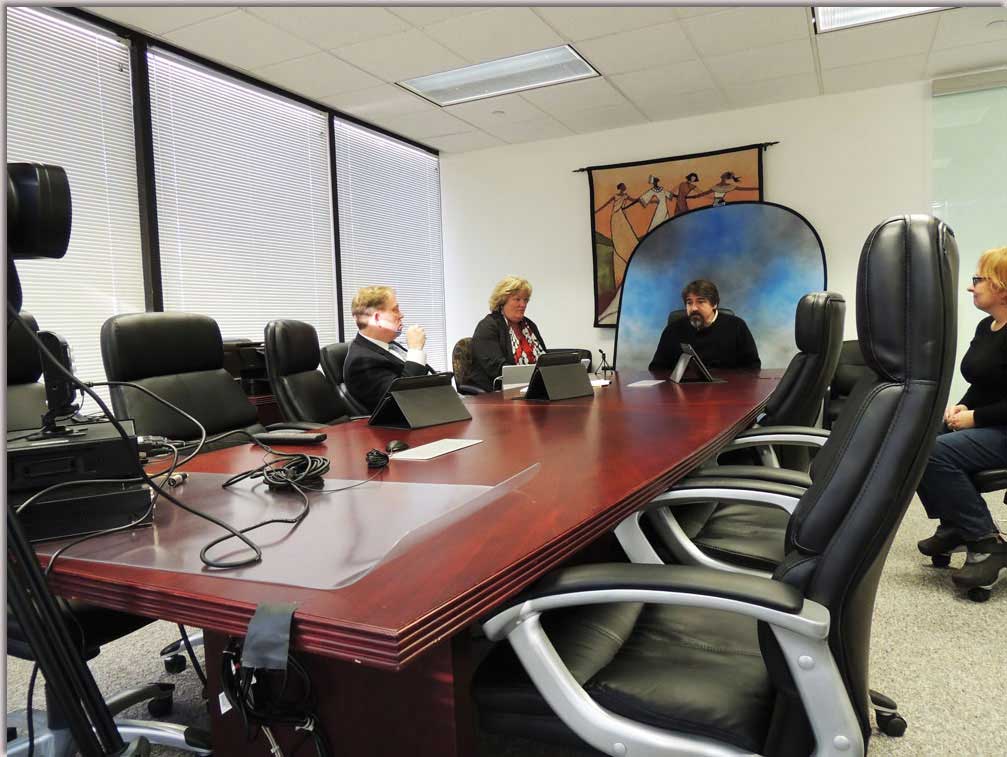The Value of Lawful Video Clip Depositions in Modern Legal Solutions: What You Must Know
Legal video clip depositions have actually become necessary in today's lawful landscape. They offer a multidimensional sight of witness testimonies that standard records simply can not match. By recording both non-verbal and spoken communication, these depositions enhance the total understanding of a witness's trustworthiness. Nonetheless, the performance of video clip depositions rests on different factors, including conformity with lawful standards and finest practices (legal video depositions). Discovering these aspects discloses their true importance in modern-day lawful solutions
What Are Legal Video Clip Depositions?
Lawful video clip depositions act as a vital device in the lawsuits procedure. They entail tape-recording witness testimonies in a video format, catching both non-verbal and spoken interaction. This method enables lawyers to document the attitude, expressions, and responses of witnesses, supplying a richer context for the testimony. Generally carried out in a controlled environment, these depositions are led by attorneys that ask questions while a court press reporter documents the discussion. The resulting video can be crucial for trial prep work, as it enables attorneys to evaluate the reputation of witnesses and fine-tune their methods. In addition, lawful video depositions can be utilized in various lawful contexts, varying from civil disagreements to criminal situations. The acoustic and visual aspects of video depositions enhance the discussion of evidence, making it a crucial part in the contemporary legal landscape. Overall, they add considerably to the performance and performance of lawful process.

Advantages of Video Clip Depositions Over Standard Techniques
Video depositions offer numerous benefits contrasted to standard techniques of taking witness testimonies. One substantial advantage is the capability to record both audio and aesthetic elements, offering a more detailed record of the witness's statements. This twin layout boosts clarity and allows lawyers to reference certain subtleties throughout trial preparation. Additionally, video clip depositions promote remote participation, making it much easier for witnesses who might be inaccessible for in-person looks because of geographical restraints or health and wellness issues.Moreover, video clip depositions can expedite the total deposition process, reducing the moment and expenses connected with traveling and logistics. They additionally improve availability, as recorded depositions can be conveniently shared among lawful teams and referenced at any moment. This ease adds to much better instance management and preparation. Overall, video depositions stand for a contemporary, reliable technique to gathering witness testimonies, straightening with the advancing needs of the legal occupation.
The Function of Body Movement and Tone in Testimonies

In legal video depositions, body language and tone play vital roles in sharing a witness's reliability and dependability. Nonverbal hints can offer understandings into a witness's mood, affecting exactly how their testimony is perceived. Recognizing the effect of these elements is vital for lawyers and jurors alike when examining the dependability of a testimony.
Nonverbal Communication Insights
While spoken communication is typically emphasized in legal testimonies, nonverbal cues such as body movement and tone play a crucial role in conveying reputation and emotion. Onlookers of depositions might keep in mind that a witness's stance, motions, and faces can substantially influence assumptions of reliability. For circumstances, regular eye contact might signal self-confidence, while avoiding gaze might suggest deceit or discomfort. The tone of voice-- its pitch, pace, and quantity-- can pass on sensations of genuineness or uncertainty. Lawyers need to be in harmony with these nonverbal signals, as they commonly provide crucial context that complements spoken words. Understanding these subtleties can improve the efficiency of depositions and affect the outcome of lawful procedures.
Emotional Tone Effect
The emotional tone conveyed during lawful statements greatly affects exactly how a witness is perceived. Body movement, vocal inflections, and facial expressions play essential functions in shaping the story of a statement. A witness exhibiting self-confidence with steady eye call and a tranquil tone can instill a feeling of reliability and involvement. Conversely, indications of stress and anxiety, such as fidgeting or an unsteady voice, may bring about uncertainty regarding their account. The nuances of psychological expression can affect the interpretation of facts, making it crucial for attorneys to acknowledge these signs. In video clip depositions, the aesthetic and auditory components combine, emphasizing the significance of psychological tone in communicating genuineness and truthfulness within the legal procedure.
Credibility and Reliability
An important consider establishing integrity and trustworthiness throughout statements depends on the witness's body language and tone of voice. Onlookers commonly rely on non-verbal cues-- such as eye get in touch with, position, and motions-- to assess a witness's sincerity. A witness that maintains eye call and presents open body language may be perceived as more reliable and straightforward than one who avoids eye call or appears shut off. In addition, tone of voice plays a crucial function; a stable, calm tone can strengthen the trustworthiness of the statement, while variations in pitch or quantity may increase uncertainties. Eventually, the mix of body movement and vocal tone considerably influences exactly how a witness's declarations are gotten and translated in a legal context.
Best Practices for Conducting Video Depositions
Carrying out video clip depositions calls for cautious preparation and implementation to ensure a clear and reliable discussion of testimony. Initially, it is very important to choose a quiet, well-lit location to lessen disturbances and safe and secure ideal video clip top quality. The tools needs to be examined beforehand, including electronic cameras, microphones, and illumination, to prevent technical issues throughout the deposition.Next, events involved must review the format and treatments beforehand, ensuring that every person understands their roles. The deponent should be informed on the procedure, including how to react plainly and concisely.Additionally, maintaining an expert disposition throughout the session is important. This includes refraining from speaking over one another and verifying that all concerns are guided suitably. Lastly, it is important to videotape the deposition in a layout that permits very easy playback and testimonial, maintaining the honesty of the testimony for future use.
Lawful Considerations and Conformity Issues
Exactly how do legal factors to consider and compliance issues influence the effectiveness of video clip depositions? Attorneys must browse a complex landscape of guidelines, guaranteeing that video clip depositions abide by jurisdictional policies and requirements. Conformity with laws concerning personal privacy, authorization, and videotaping techniques is necessary. For example, acquiring specific authorization from all events included is required to prevent legal repercussions.Additionally, the admissibility of video proof in court can depend upon conformity with procedural demands. Making sure that the equipment used satisfies technological standards is likewise crucial, as bad top quality can threaten the find out this here deposition's reliability.Moreover, lawyers should understand any kind of specific state laws that regulate video clip depositions, as these can differ significantly. Failing to address these factors to consider can not just endanger the stability of the deposition however additionally affect the general case strategy, eventually influencing the customer's lawful end results.
How Video Clip Depositions Impact Court Assumption
While video depositions can offer as powerful tools in lawful process, their impact on jury perception is significant. The visual and auditory components of video recordings offer jurors with a more extensive understanding of witness demeanor, reliability, and psychological actions. This multimedia method can enhance the jurors' capacity to evaluate the dependability of testament compared to conventional text-based transcripts.Moreover, video clip depositions allow jurors to observe body language, intonation, and face expressions, every one of which can affect their analysis of the witness's declarations. The visibility of a witness on screen can humanize them, fostering empathy and connection, which may persuade jurors' opinions. On the other hand, a witness that shows up unreliable or evasive on video might lead to unfavorable understandings that influence a court's choice. Inevitably, the vibrant nature of video clip visit the site depositions plays an essential function in forming exactly how jurors interpret proof and reach their judgments.
The Future of Video Depositions in Legal Practice
As advancements in modern technology continue to improve the legal landscape, the future of video depositions is positioned for significant development. Developments such as artificial intelligence, digital truth, and improved video conferencing tools are anticipated to simplify the deposition process and boost ease of access. Lawyers may utilize AI-driven analytics to assess witness trustworthiness and case strength extra effectively.Moreover, the assimilation of digital fact could permit juries to experience immersive simulations of depositions, providing deeper context and understanding. In addition, the fad toward remote depositions is most likely to linger, offering greater versatility for clients and attorneys alike.As remote job becomes increasingly stabilized, video depositions will likely become conventional practice, reducing prices and time restrictions related to traditional approaches. Overall, these technical innovations guarantee to enhance the efficiency, effectiveness, and ease of access of video clip depositions in lawful technique, ultimately changing exactly how lawyers get ready for trial.
Regularly Asked Concerns
How Much Do Lawful Video Clip Depositions Normally Cost?

Can Video Depositions Be Utilized in Any Type Of Sort Of Instance?
Video depositions can be used in numerous types of instances, consisting of civil, criminal, and household law. Their flexibility allows lawyers to existing witness testaments properly, adapting to the specific demands of different legal situations.
What Tools Is Needed for a Video Deposition?
To perform a video deposition, vital tools consists of a high-quality cam, microphone, lighting, and a trustworthy recording tool. In addition, a computer system with editing and see enhancing software program might be needed for post-production and formatting the last video clip.
How Lengthy Does a Normal Video Clip Deposition Last?
A common video clip deposition lasts in between 2 to four hours, depending on the intricacy of the situation and the number of inquiries presented. Extensive sessions might take place, yet breaks are generally incorporated for participant comfort.

Are Video Clip Depositions Admissible in Court?
Video depositions are usually permissible in court, offered they follow lawful standards and policies of evidence. Their use improves clearness and maintains witness statement, aiding in the judicial process throughout trials and hearings. Lawful video clip depositions have become crucial in today's legal landscape. Additionally, legal video clip depositions can be made use of in various legal contexts, ranging from civil conflicts to criminal cases. Additionally, video depositions promote remote involvement, making it easier for witnesses who may be inaccessible for in-person appearances due to geographical restrictions or health issues.Moreover, video clip depositions can expedite the total deposition process, lowering the time and expenses connected with travel and logistics. Guaranteeing that the devices used meets technical standards is likewise crucial, as bad top quality can threaten the deposition's reliability.Moreover, attorneys need to be aware of any details state legislations that regulate video depositions, as these can differ greatly. Additionally, the trend toward remote depositions is likely to linger, supplying higher versatility for customers and lawyers alike.As remote work comes to be progressively stabilized, video depositions will likely end up being basic practice, minimizing costs and time restraints connected with traditional techniques.